Is it a dust pollution or some biological or organic charged particle?by Dr. Nitish Priyadarshi
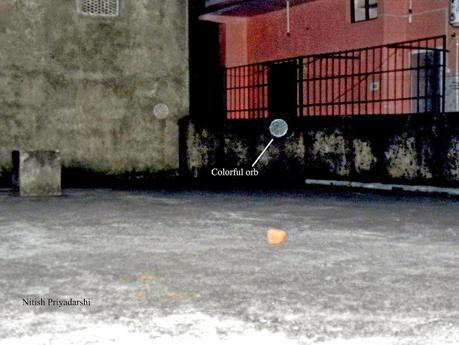
Two orbs are seen in the above picture.
The term orb describes unexpected, typically circular artifacts that occur in flash photography—sometimes with trails indicating motion—especially common with modern compact and ultra-compact digital cameras. Many people capture illuminated, circular spots in their photographs. These spots are commonly known as orbs.
Having been a photographer for 30 years, I’ve experienced all kinds of flaws, defects and other apparitions on my negatives and now digital images. Most have been identified or at the least, understood to be some kind of image pollution ranging from light leaks, lens flares, dust, fog or other type of atmospheric condition. Since the advent of digital imaging however, there is a new phenomenon called “orbs” that are appearing in increasing numbers on many photographer’s images today.
I started to become aware of orbs appearing in my pictures and I didn't know what they were at first. These orbs were caught in Ranchi on my rooftop, in the street etc. Surprisingly very few Orbs were found in street compared to sky or on roof top. In a forest area near to road there was no orbs found. Some people explain orbs as light reflected off surrounding surfaces; some explain them as light reflected off dust particles; and some explain them as spirits or other entities normally invisible to the human eye.
The “orbs” that people “catch” are usually water vapor, dust, lens reflection (or any reflection actually), pollen or bugs. Orbs are the most commonly found anomaly in spirit photography, as well as on video. As all paranormal investigators and skeptics know, there are many natural elements that can appear to be orbs in photographs - Things such as dust, pollen and other airborne particles, rain, snow, moisture and even humidity. Rain and snow are simple to distinguish from orbs in photographs. Some say that orbs have many names including globes, globules, balls of light, and hovering round balls. They appear in all ranges of brightness from bright-&-glowing to faded-&-barely-visible. Others say that its marsh gas, static electrical activity; or other point light sources such as a glowing cigarette, fireflies, glow worms, flashlight reflections etc. They are usually quite fast and follow an erratic pattern of flight. Little research has been done on this phenomenon.
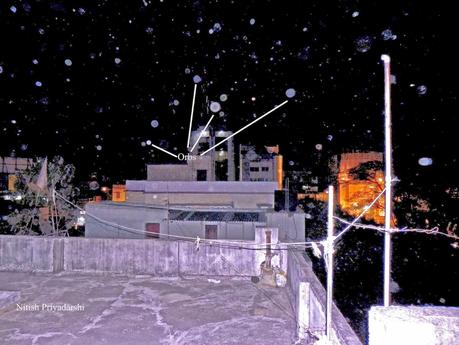
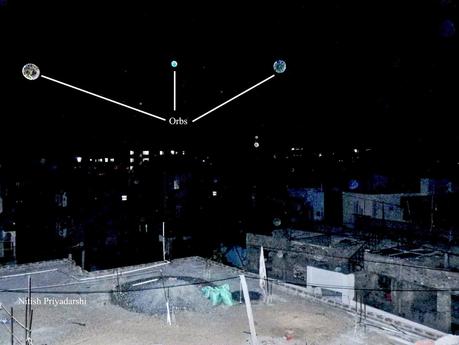
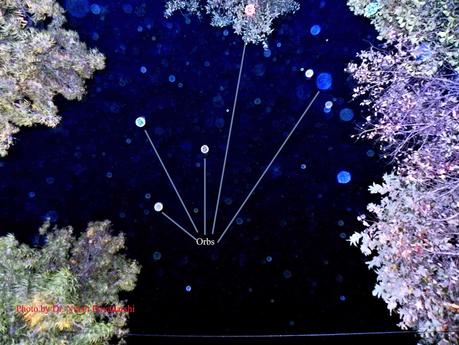
Above figures show good amount of orbs in the sky.
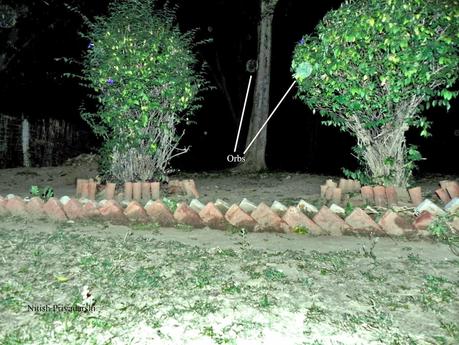 In the above figure only few orbs are seen near to earth compared to the sky.
In the above figure only few orbs are seen near to earth compared to the sky.I started doing research on these orbs keeping in mind that it’s related to dust pollution. I got surprising results. I tried to create dust pollution by making fire using some dried woods and papers. When I clicked my camera to my surprise there were only two to three orbs in the air. Is it possible that even burning of woods and papers in good amount there will be very few dust pollution? When I used my camera in my rooms there were no orbs found. This means that my house is completely free of dust pollution? Other big question is that why all the orbs which my camera captured were few near to the earth compared to sky. Even they were found in some good amount near the dense trees when we know that trees works as a good absorbent of dust pollution. We suggest people residing near by highways or mining areas to plant more trees to minimize dust pollution. If these orbs are really dust pollution then planting trees is not going to help to absorb dust pollution. All the orbs which I captured where in good amount high in the sky than compared near to the earth. In some areas it was totally absent.
To see the minute structure of dust particle we need electron microscope. If you see the dust particles through electron microscope it will show different structures not like orbs as it is shown below. I am sure these orbs are some energized or charged particles but not dust particles.
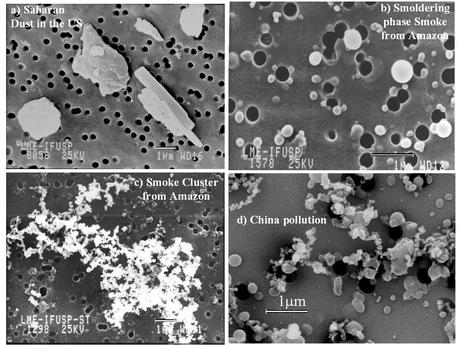
See how the dust particles look in electron microscope in the above figure.
Experts say that the orbs are also found due to the water molecules, rain drops in the air. I took most of the photographs in the month of March in my city when it’s a dry and hot with no rainfall. Then how it’s possible that orbs were seen in the air?
I also tried to monitor their movement with the help of my infrared camera. Sometimes they were found floating randomly in the air and sometimes in particular direction. Many times I have also seen these orbs moving in very slow motion. How it’s possible that when there is no wind movement these orbs were found moving upwards against the gravitational pull? Any dust pollution has the tendency to settle down in absence of wind or during rainfall.
Colors in particles always indicate impurities or pollution or due to presence of metals in the particles. In my pictures many orbs were colorful from blue to golden yellow. This means that these orbs are highly toxic for humans. But to my knowledge metal pollution or other pollution is only there where this continuous combustion of fuel, chemical processes, active mining areas, disturbing the soil during agricultural activity, volcanic eruption or some metal producing industries. I took all my photographs either in open grass land or forest area where the air pollution are at their lower level or in my house far away from highway or factories.
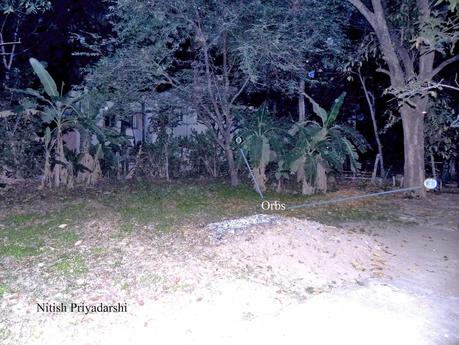 In the above picture only few orbs are seen in the garden
In the above picture only few orbs are seen in the garden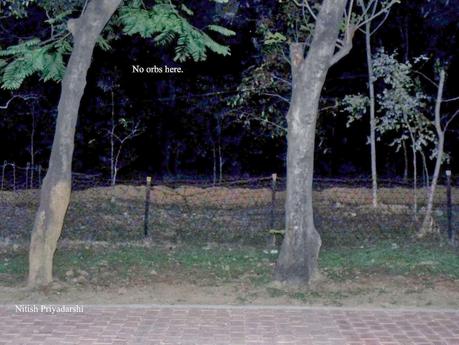 No orbs are seen here beside the road.
No orbs are seen here beside the road. 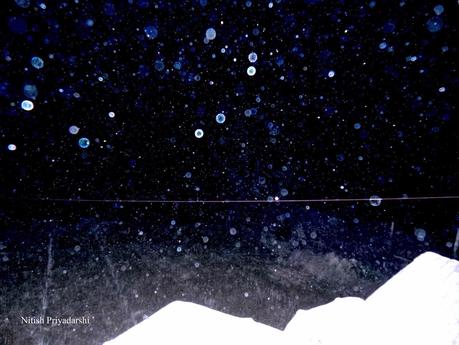 In the above picture orbs are seen but in remote area outside Ranchi.
In the above picture orbs are seen but in remote area outside Ranchi.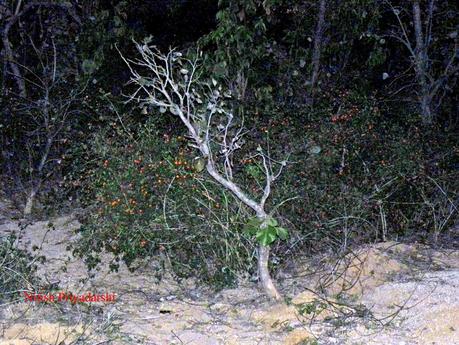
No orbs are seen here in the forest area beside highway.
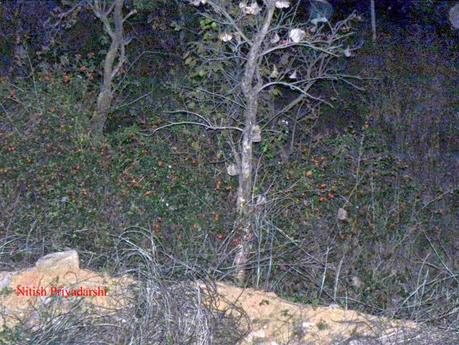
Here also no orbs are seen. This forest area is also near highway.
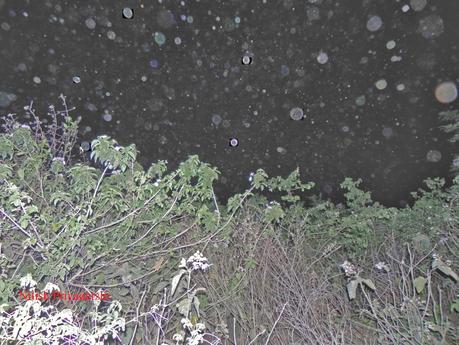 But on the same highway few kms towards Ranchi orbs are seen.
But on the same highway few kms towards Ranchi orbs are seen.Ok, is it aerosols? We know that the air that we breath every day is primarily composed of gas molecules, but it also contains a large variety of suspended solid and liquid particles. These particles in suspension in the atmosphere are called aerosols. Aerosols are present in many aspects of our daily life.
Or it’s a fly ash? In an industrial context, fly ash usually refers to ash produced during combustion of coal. Fly ash is generally captured by electrostatic precipitators or other particle filtration equipment before the flue gases reach the chimneys of coal-fired power plants, and together with bottom ash removed from the bottom of the furnace is in this case jointly known as coal ash. But as I told you earlier all these photographs were taken far away from such industries which generate fly ash. Also simple camera cannot take the pictures of fly ash. We need electron microscope to see the clear image of fly ash.
One theory says that it’s a ball of energy. Other theory says that its bugs or condensation. These two elements are very reflective and produce a vibrant orb because there is more surface area to bounce the light off of. Bugs have exoskeletons which are usually shiny. Water is very reflective in nature. Some say its pollen grains.
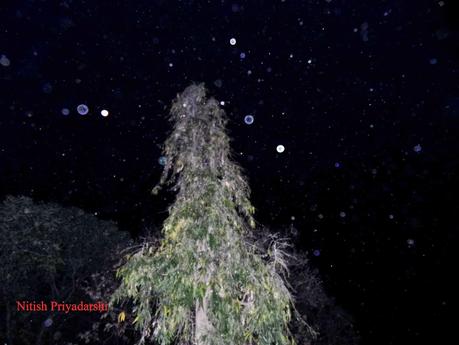 Orbs are seen here around Ashok Tree which acts as a good dust absorbent.
Orbs are seen here around Ashok Tree which acts as a good dust absorbent.According to me, its not just dust particle. It’s something else like some biological or organic charged particle. They use their self generated energy to float around in the atmosphere. I have seen their movement in an open space with my infra red camera. They sometimes move upwards sometimes move in particular direction and sometimes randomly. They rarely collide with each other.
Many theories have come forward on the mysteries of orbs. But the question still remains, what is orbs?
